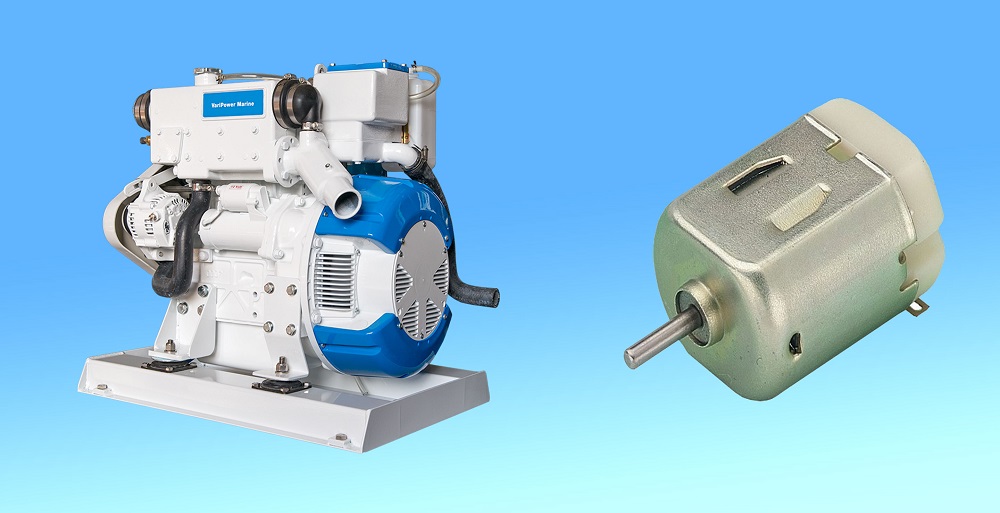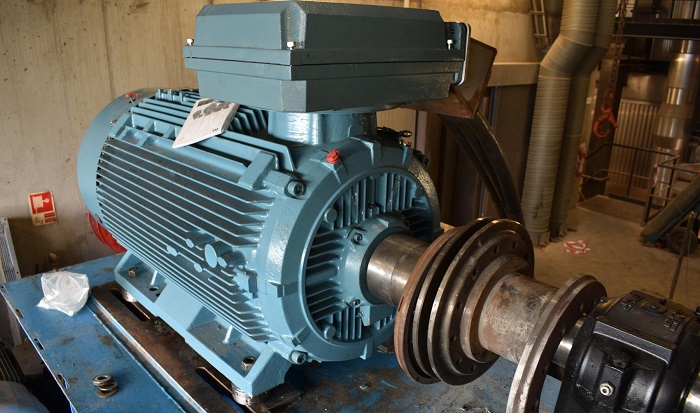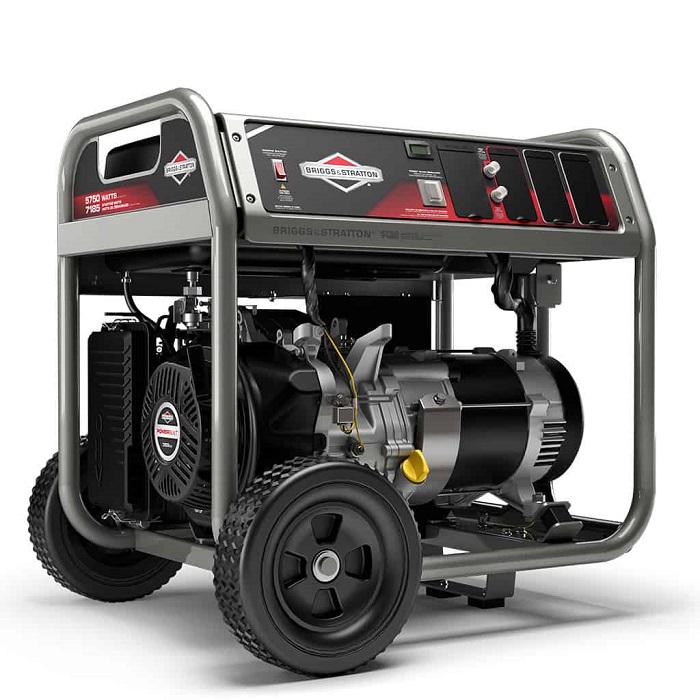Today motors and generators have become a common electrical tools used in almost every electrical appliance. They both are electric devices that change one form of energy to another and have evolved through a large number of changes. Although their hardware requirements are similar, motors and generators differ in their operational behavior. In this article, we will take a closer look at the difference between a motor and a generator. Keep on reading this new blog in Linquip to learn more about them.
What is a motor?
A motor is a form of electrical machine that converts electrical energy into mechanical energy. Electric motors take power either from direct current (DC) sources, such as from batteries, motor vehicles, or rectifiers, or from alternating current (AC) sources, such as a power grid, inverters, or electrical generators.
The motor components and working principles are as follows.
- Stator
- Rotor
- Shaft
- Commutator
- Brushes
When the power is switched on, the brushes supply current to the commutators. These commutators are attached to the rotating coils, one to each end. Current passes from commutators into the coil, placed in between the poles of permanent magnets, and stator. When current moves in the coil, the magnetic field is induced around the coil.
This magnetic field comes in contact with the magnetic field of the permanent magnets and due to the characteristic of the magnetism, poles repel each other and unlike poles attract, the coil starts to rotate. When the rotor rotates the shaft attached to it also rotates thereby converting the applied electrical energy into mechanical energy.
What is a generator?
A generator operates with a reversed flow of power, converting mechanical energy into electrical energy. The hardware requirements of the generator are the same but the working principle differs. Here when the mechanical energy is applied to the shaft, the rotor rotates and this movement of the rotor between the permanent magnets starts generating electricity inside the coils of the rotor. This electricity is collected by the brushes.
The difference between motor and generator
There is a description of the difference between a motor and a generator by considering several factors. The following factors show the main differences between these two in the table below.
| Parameter | Motor | Generator |
| Function | It converts Electrical energy into Mechanical Energy | It converts Mechanical energy to Electrical energy |
| Working Principle | The working principle of a motor is based on the current-carrying conductor that experiences a force when it is kept in the magnetic field. | The working principle of the generator is based on electromagnetic induction. |
| Rule | Fleming’s left-hand rule | Fleming’s right-hand rule |
| Driving force for shaft | The shaft of an electric motor is driven by a magnetic force that is developed between the armature and the field. | The shaft of an electric generator is connected to the rotor which is driven by a mechanical force. |
| Electricity | It uses electricity. | It generates electricity. |
| Current Usage | In a motor, the current is supplied to the armature winding. | In a generator, the current is produced in the armature winding. |
| Source of energy | Power grids, electrical supply | steam turbines, water turbines, internal combustion engines |
| EMF | The electric motor gives outback emf to the circuit | The generator gives emf to the load connected. |
| Application | Automobiles, elevators, fans, pumps, etc. | In power supply chains in industries, testing purposes in the laboratory, general lighting, powering of batteries, etc. |
| Example | Ceiling fans, cars, bikes, etc. | In power stations, a generator is used to generate electricity. |
The difference between the motor and the generator is mentioned below.
- The Motor converts electric energy into mechanical energy, whereas the generator does the opposite.
- The motor operates based on the current-carrying conductor that experiences a force when it is kept in the magnetic field. However, the working principle of the generator is based on electromagnetic induction.
- Motor follows Fleming’s Left-hand rule while Generator follows Fleming’s Right-hand rule.
- The Shaft of the motor is driven by the magnetic force developed between armature and field windings whereas, in the case of the Generator the Shaft is attached to the rotor and is driven by mechanical force.
- Electricity is used in the motor, but the generator produces electricity.
- The current is to be supplied to the armature windings in case of a Motor, and in Generator, the current is produced in the armature windings.
- Motors take power from Power grids and electrical supplies while generators take power from steam turbines, water turbines, and internal combustion engines.
- The electric motor gives outback EMF to the circuit while the generator gives EMF to the load connected.
- Motors are used in automobiles, elevators, fans, pumps, etc. whereas, generators are used in power supply chains in industries, testing purposes in the laboratory, general lighting, powering of batteries, etc.
- An example of a Motor is an electric car or bike where electric current is supplied to the machine or device, and it gets converted into mechanical motion and, as a result, the car or bike moves. An example of a generator is that in power stations the turbine is used as a device that converts mechanical energy of force of water falling from the dam to generate electric energy.
So, this is all you need to know about the difference between a motor and a generator. If you enjoy this article, let us know what you think by leaving a reply in the comment section. We will be glad to have your viewpoint on the article. Is there any question we can help you with? Feel free to sign up on Linquip to get the most professional advice from our experts.
Buy Equipment or Ask for a Service
By using Linquip RFQ Service, you can expect to receive quotations from various suppliers across multiple industries and regions.
Click Here to Request a Quotation From Suppliers and Service Providers
Read More on Linquip
- Difference Between Energy and Power
- What is the Difference Between Oscillator and Crystal?
- Difference between Electric and Magnetic Fields
- Difference Between Period and Frequency
- A Complete Guide to The Difference Between Stepper Motor and DC Motor
- What Is a Generator? A Comprehensive Explanation of Working Principles, Types, and Components
- What are the Advantages of DC over AC?
- Everything About Switched Reluctance Motor
- The Difference Between Generator and Inverter: All You Need to Know
- What is AC Motor? Types, Principles, and Constructions
- The Simple Guide to Motor Efficiency: What It is and What to Do
- Difference Between Current and Static Electricity
- Difference Between Hydraulics and Pneumatics
- Difference between AC and DC generators: An easy to understand guide
- Difference between single-phase and three-phase generators: An ultimate guide
- Difference Between Mechanical and Electromagnetic Waves






